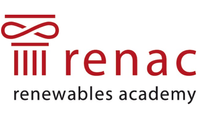


Power-to-X: Applications and Cost Development Course
Learn how Power-to-X and sector coupling enable the efficient use of renewable energy in heating, transport, and industry. This clean energy programme covers technologies, cost developments, and policy frameworks, helping you understand the economic and technical aspects of electrification and renewable synthetic fuels.
Participants will explore direct electrification in heating and transport, including the role of electric heat pumps, heaters, and electric vehicles, along with cost comparisons and infrastructure requirements. The course also covers the indirect use of electricity through Power-to-X technologies, such as the production of hydrogen and synthetic fuels, their applications, and the economic factors influencing their scalability.
A dedicated section on regulatory frameworks examines how policies and incentives support the profitability of sector coupling and promote flexibility in energy systems. By the end of the course, participants will have a comprehensive understanding of Power-to-X applications, their cost developments, and their role in accelerating the global energy transition.
- Understand the concept of sector coupling, its role in the energy transition, and the opportunities and challenges
- Compare and evaluate different sector coupling technologies for heating, cooling, and transport
- Analyze cost developments and future trends in electrification technologies
- Assess the impact of policy frameworks and incentives on the profitability and scalability of sector coupling solutions
- Flexibility to study at any time and from any location
- Moderated discussion forum for students
- Contact with learning facilitators
- Multimedia learning materials
- Self-assessments
- Discounts for our alumni, group bookings, and multiple purchases
- RENAC certificate upon successful completion of the course
- Introduction to Sector Coupling
- Direct Electrification in Heating & Cooling
- Direct Electrification in Transport
- Power-to-X & Indirect Electrification
- Cost Developments & Market Trends
- Regulatory Frameworks & Incentives
- Professionals seeking a comprehensive understanding of sector coupling
- Engineers & technical experts aiming to gain insights into the technologies behind direct and indirect electrification
- Energy & sustainability consultants and regulators wishing to develop expertise in energy transition strategies
- Duration: 4 weeks.
- Study time: about 14 hours.
- Course language: English.
- Detailed course description: a detailed course description is available for download.
- E-learning platform: you can access the demo course on our e-learning platform.
- Price: €240.34
